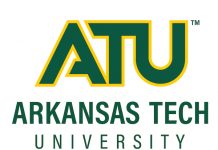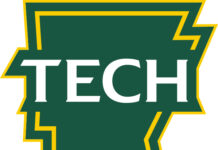Faculty members at Arkansas Tech University have developed a new interdisciplinary course that will use project-based learning to investigate real-world solutions to contemporary problems.
The first section of the Collaborative Solutions course (IPBL 4893) will consist of 20 students during the spring 2017 semester. Those students will study issues related to climate change under the mentorship of Dr. Caroline Hackerott, assistant professor of emergency management.
“This course will be a team-based testing ground for many high-impact learning practices,” said Dr. Jeff Woods, dean of the Arkansas Tech College of Arts and Humanities. “It will be a teaching and learning lab. Assessment will show us if the techniques in this class might help students in other courses. If it goes well, we hope some of the methods will be adopted elsewhere on campus.”
In order to ensure representation from a variety of academic disciplines, upper level students from every discipline across campus are encouraged to consider enrolling in the course.
Woods said that feedback from students was a primary factor in selecting climate change as the topic for the inaugural Collaborative Solutions course.
“It’s part of the ethos of campus,” said Woods. “Food, shelter and energy insecurity are issues that interest students and faculty. This class will be a platform for studying those topics and making a contribution by bridging theory and practice. There is an entrepreneurial component to it, and students will develop skills that are highly sought after…skills such as working as a member of a team and problem solving in an unstructured environment.”
Dr. Julie Mikles-Schluterman, associate professor of sociology and member of the design team that developed Collaborative Solutions as a course, said realistic application of concepts will be central to the student experience.
“We shouldn’t just let their ideas die in the classroom,” said Mikles-Schluterman. “Our job is to make their ideas happen. I love the idea of giving their projects legs. The hope is that an individual in the larger community will learn about a project and choose to invest in students.”
Members of the class will network with and learn from climate change experts during a mid-semester symposium. At the end of the course, course participants will present their projects.
In addition to faculty input, another driving force in the creation of the Collaborative Solutions course was alumnus Bob Dickson of Harrison, who earned a mathematics degree from Arkansas Tech in 1968. Woods said that Dickson’s financial support and guidance as a committee member were integral in making the class possible.
Students interested in learning more about the Collaborative Solutions course are encouraged to contact the department head in their major or Dr. Hackerott about enrolling in the class.





